The 7 Best Warming Spices That Fight Inflammation Better Than Tea
When it comes to soothing inflamed joints, achy muscles, or that nagging sense of sluggishness, your kitchen cabinet might have more answers than your tea collection ever could. While sipping on herbal or green tea has gained a healthy reputation, there's a world of warming spices that deliver anti-inflammatory benefits far more directly and potently. These vibrant seasonings have powered home remedies and traditional medicine for centuries, and modern research is catching up to their secrets. What makes a spice "warming"? It's that gentle heat and inner glow you notice after eating foods seasoned with turmeric, ginger, or even a pinch of cayenne. But there's more at play than comfort: these spices pack concentrated compounds that help cool internal fires, support your immune system, and make healthy aging feel just a little brighter. Whether you're hoping to amp up your cooking or just sprinkle a dash of self-care on your day, discovering the right warming spices can be a game changer. Let's dig into the seven best choices—each with their own science, flavor, and practical magic—ready to help you feel more vibrant than tea ever could!
1. Turmeric: Nature’s Golden Anti-Inflammatory Star
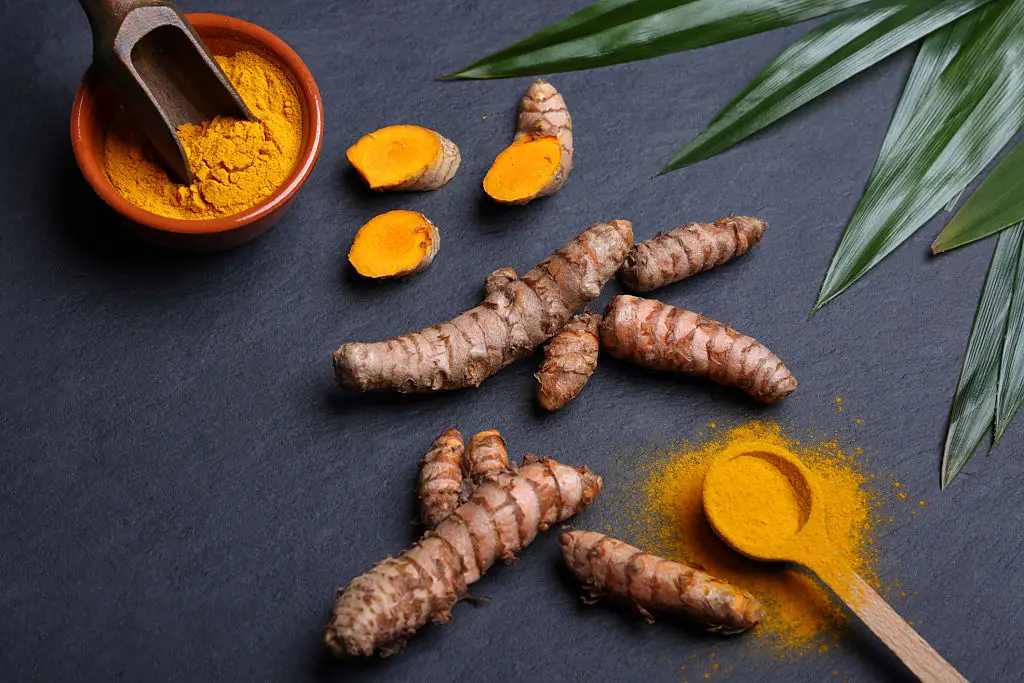
Turmeric sits at the top of nearly every anti-inflammatory list, and for good reason. Its most famous active compound, curcumin, is a powerhouse when it comes to calming the body’s internal stress and fighting damaging inflammation. What sets turmeric apart from soothing teas is the sheer concentration of curcumin and its proven ability to tackle chronic inflammation at the source. Scientific studies highlight curcumin’s ability to lower inflammatory markers, which is why it's often recommended by nutrition experts for easing joint stiffness and muscle aches. To get the most from turmeric, blend it into golden milk with a bit of healthy fat and black pepper—this combo increases curcumin’s absorption and supports your body's defenses more than a cup of standard tea. Sprinkle it over roasted veggies, add it to soups, or stir into curries for a golden boost that's as beautiful as it is beneficial. Just note, if you're taking high-dose supplements or certain medications, it's wise to check with your doctor as turmeric can have interactions. In daily cooking, though, it’s a gentle ally that brings comfort and resilience in every spoonful.
2. Ginger: The Soothing Circulation Booster
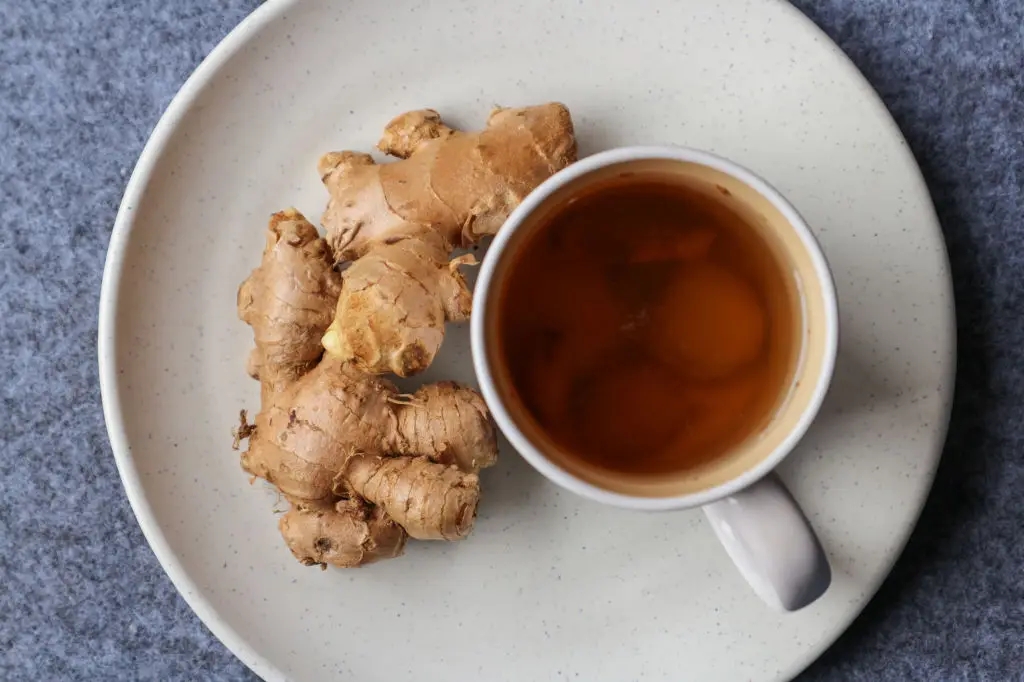
Ginger has a well-deserved reputation as a natural remedy for everything from nausea to stomach upsets, but its anti-inflammatory benefits stretch much further. The spicy warmth in ginger root comes from gingerols and shogaols, compounds recognized by researchers for their strong inflammation-fighting and circulation-boosting abilities. Unlike teas, which often use small amounts of dried ginger, adding fresh or powdered ginger to dishes means you’re getting a more concentrated dose of these helpful compounds. Many dietitians recommend blending ginger into smoothies, stir-fries, or making your own steeped ginger drink for maximum effect. It's gentle on most stomachs and can even help ease indigestion that might arise from other anti-inflammatory ingredients. For those using blood thinners or managing specific health conditions, taking ginger in higher doses could interact with medications—so starting with small amounts and listening to your body is key. Warm, zesty, and deeply supportive, ginger is a friend to your whole system.
3. Cinnamon: Delicious Defender for Immunity
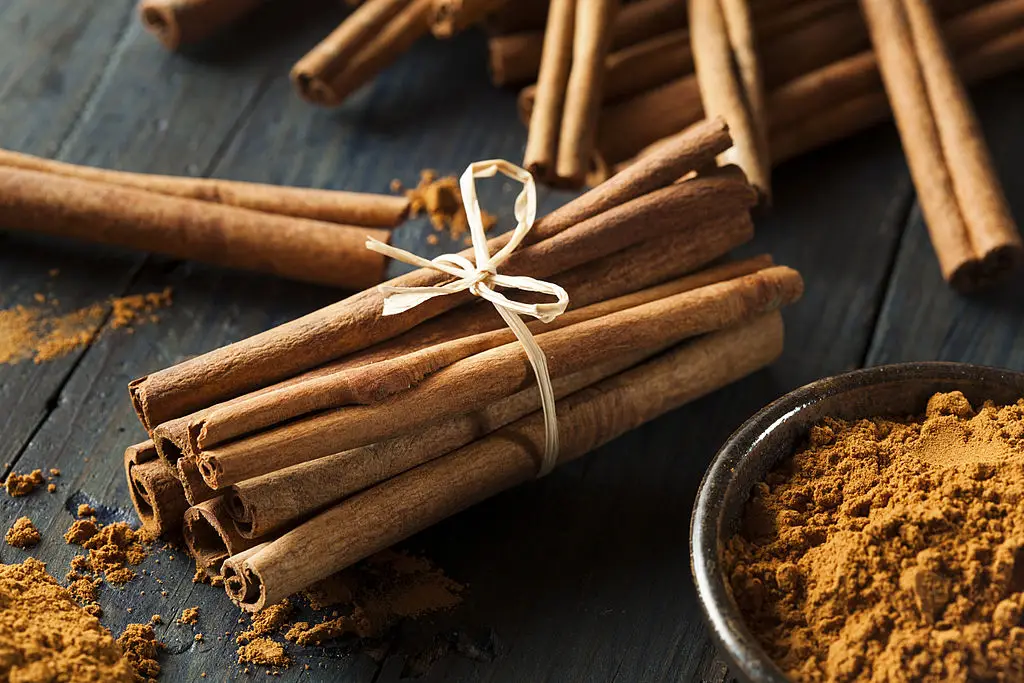
Cinnamon isn’t just for sweet treats or winter holidays—its delightful warmth brings more to your health than meets the eye. The rich, spicy aroma comes from cinnamaldehyde, a natural chemical linked to reduced inflammation and enhanced immune defenses. Compared to teas, which contain diluted levels of plant compounds, using a sprinkle or spoonful of cinnamon in your daily meals means you benefit from higher concentrations of these active agents. Registered dietitians often highlight the simple ritual of stirring cinnamon into oatmeal, yogurt, or even your coffee as a reliable way to help manage inflammation and support your overall well-being. There are two main types: Cassia and Ceylon. Cassia is common in the US but can be high in a natural compound called coumarin—in large amounts, this may impact liver health. Ceylon cinnamon is considered the "true" cinnamon with a milder profile and is a great option for regular use. However you enjoy it, cinnamon offers a tasty route to a calmer, more resilient body.
4. Cayenne Pepper: The Spicy Inflammation Fighter
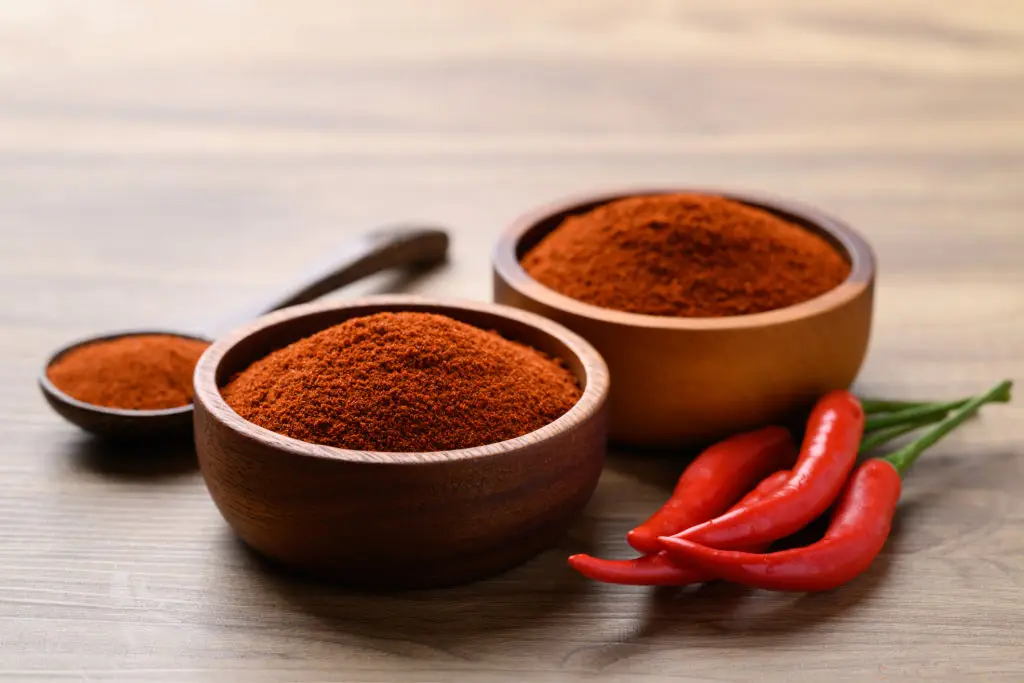
If you’ve ever felt a gentle burn after a bite of chili or a dash of hot sauce, you’ve met the warming magic of cayenne pepper. What makes cayenne special is capsaicin—the compound responsible for its fiery heat and its powerful anti-inflammatory effects. Capsaicin helps improve circulation and may support the reduction of pain or swelling when included regularly in your meals. Unlike mild teas, which offer slow subtlety, cayenne goes straight to work, giving your taste buds a wake-up call and your body a natural anti-inflammatory nudge. Sprinkle cayenne onto eggs, add it to chili, or whirl into vinaigrettes for an energizing, warming lift. Sensitive to spicy foods? It’s best to start with a tiny pinch; those with digestive sensitivities or ulcers should use caution, but for most, this spice offers more than just flavor—it brings functional fire to your toolbox for fighting inflammation.
5. Black Pepper: The Absorption Advantage
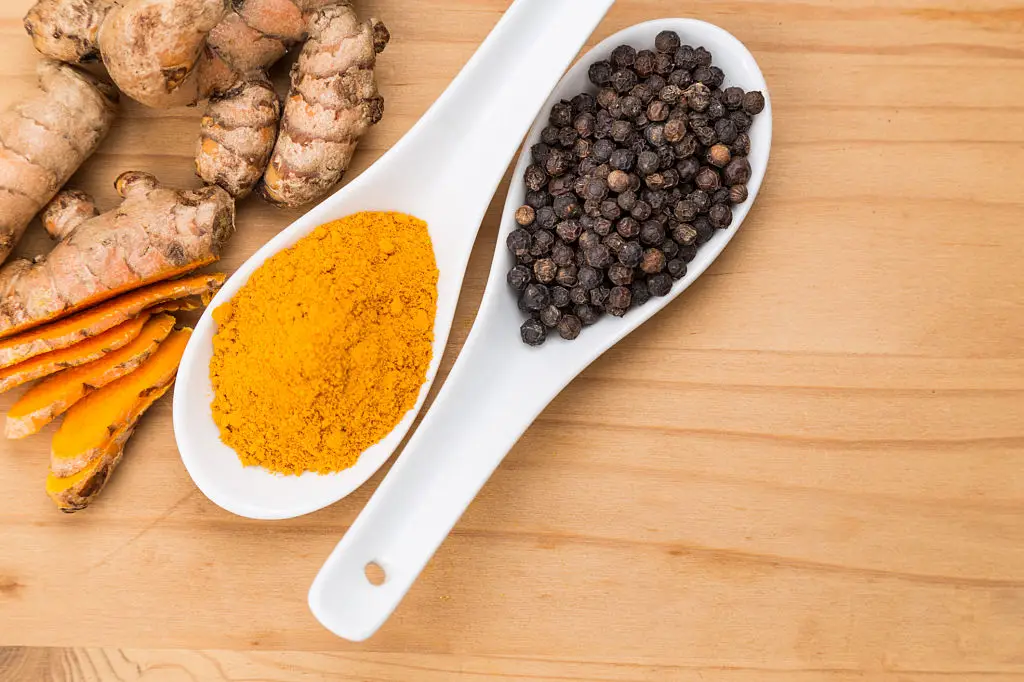
Black pepper is likely the most overlooked hero in your spice rack. While teas soothe, black pepper energizes. Its main compound, piperine, not only works on its own to ease inflammation, but uniquely enhances the absorption of other anti-inflammatory spices—especially turmeric. Experts note that sprinkling fresh black pepper onto your savory dishes or combining it in marinades with a dash of healthy fat can unlock much more from your food than a routine cup of tea. The synergy between black pepper and turmeric is well-documented and helps your body access healing compounds efficiently. While a heavy hand with black pepper isn’t needed, regularly grinding a little over your meals can be a simple yet effective step in keeping inflammation at bay. If you’re taking certain medications, consult with a healthcare provider, but in everyday cooking, black pepper is subtle, supportive, and seriously smart.
6. Cardamom: Gentle Digestive & Anti-Inflammatory Ally
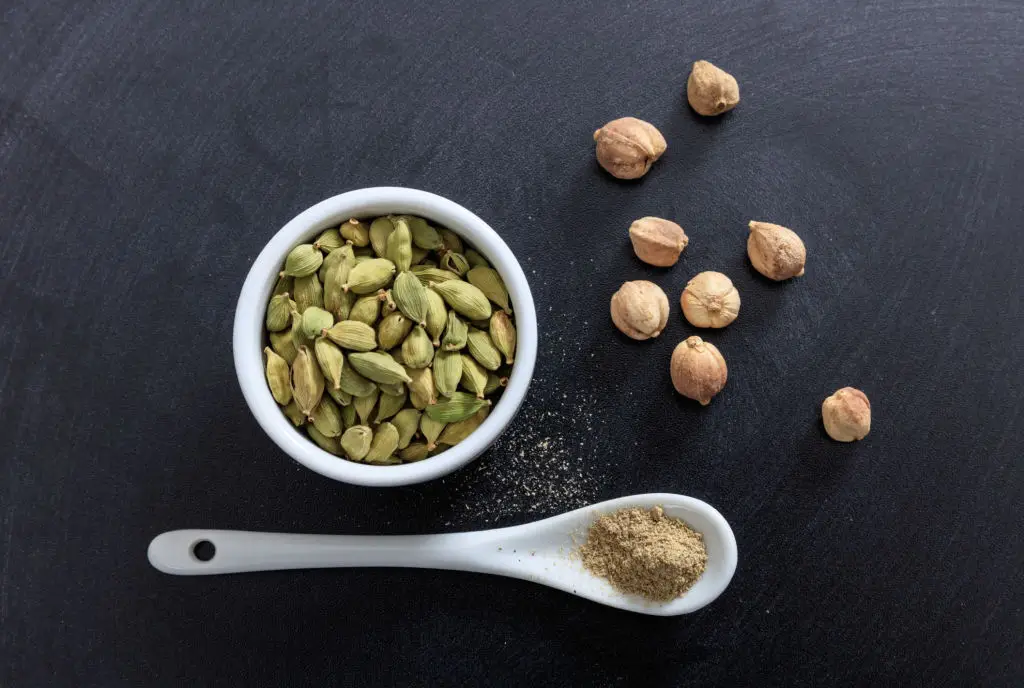
Cardamom brings a uniquely sweet spice to both sweet and savory dishes, but its benefits extend well beyond taste. Packed with antioxidant-rich volatile oils, cardamom has been shown in studies to help lower inflammation and soothe digestive woes, making it a dual-purpose superstar. While some teas feature hints of cardamom, adding it as a spice provides more potent effects. Dropping a cracked pod into your coffee, blending ground cardamom into your morning smoothie, or simmering it alongside rice infuses your meal with gentle heat and holistic support. For most people, culinary doses of cardamom are safe and add a welcome, fragrant twist to familiar recipes. True allergies are rare, but as with any spice, starting with a small amount and gradually discovering your preferences makes the journey enjoyable, not overwhelming. Cardamom’s warming wisdom helps you nurture your gut and calm your body from the inside out.
7. Fennel: The Under-the-Radar Inflammation Tamer
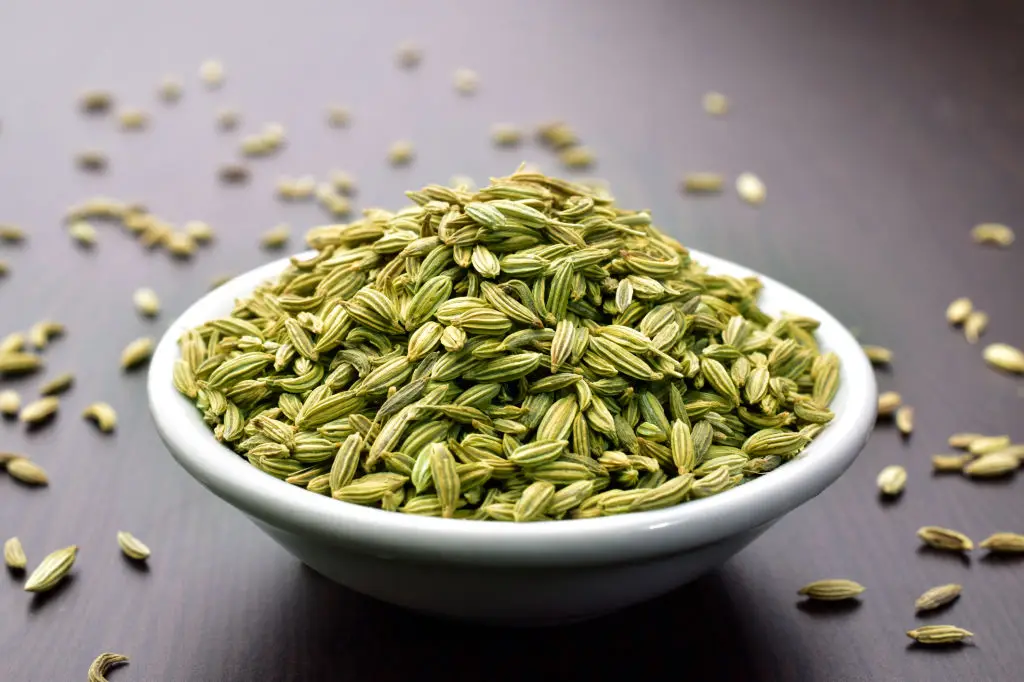
Fennel seeds may look humble, but their mild, licorice-like flavor brings surprising anti-inflammatory and digestive benefits. The key is anethole, a unique plant compound that research ties to a reduction in inflammation markers and smoother digestion. Unlike teas, where fennel is often diluted, chewing the whole seeds or toasting and crushing them maximizes both flavor and health impact. Fennel supports the gut's natural rhythms, making it a gentle follow-up after heavier meals or when you want to calm a busy belly. Just a small pinch after eating or blended into a vegetable roast delivers more concentrated benefits than most herb teas. Fennel is widely considered safe, though very high doses should be avoided in pregnancy. For everyone else, this often-overlooked spice is a subtle, supportive addition to your anti-inflammatory toolkit.
The Simple Joy (and Power) of Daily Spice
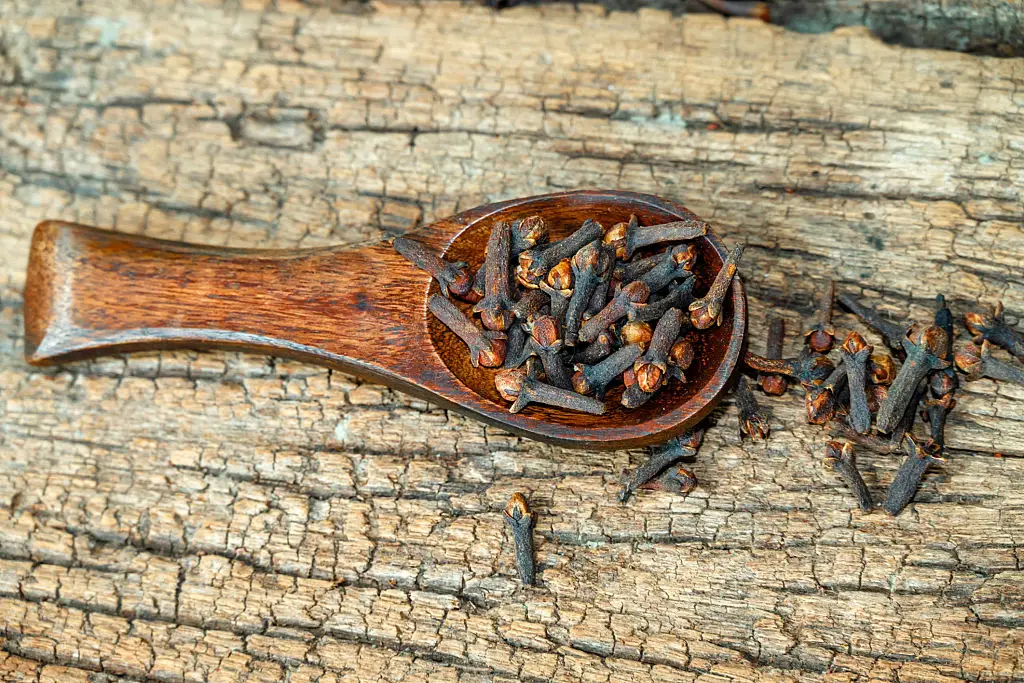
Embracing warming spices in your daily routine isn't about perfection. It's about giving yourself small, powerful moments of care that naturally support your body’s ability to handle inflammation, stress, and the challenges of everyday life. Every sprinkle, dash, or stir offers not just flavor but a chance to reconnect with what feels good and nurturing, especially as our needs shift with the seasons or as we age. Unlike tea, which is often a relaxing ritual, these seven spices pack a more concentrated punch of helpful compounds—making each meal, snack, or cup of golden milk a celebration of wellness in action. Savor the journey, experiment with new combinations, and listen to how your body responds. Over time, these gentle choices add up. Your kitchen becomes a toolbox for resilience, your table a setting for vibrant living—and every meal, an invitation to feel your best. After all, the biggest wins in wellness are often built on the smallest, most delicious details.
